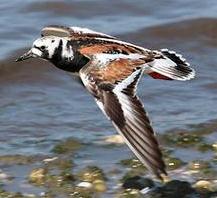 今年夏天,正當數百萬的候鳥從南方避寒地,北飛到加拿大哺育下一代,非營利保育機構「自然加拿大」(Nature Canada)宣布,加拿大天然氣巨頭TransCanada公司將支持一項保護全國各地重要鳥類棲息地的行動。
今年夏天,正當數百萬的候鳥從南方避寒地,北飛到加拿大哺育下一代,非營利保育機構「自然加拿大」(Nature Canada)宣布,加拿大天然氣巨頭TransCanada公司將支持一項保護全國各地重要鳥類棲息地的行動。
TransCanada公司已承諾在未來五年內,捐贈一百萬加幣,協助建構「加拿大重要鳥類棲地守護者網絡」(Important Bird Area Caretakers Network)。透過此行動,在全國各地的社區內建立一個志願守護者網點。守護者在各自的重要鳥類棲地扮演監督和保護的角色。加拿大全國有597個「重要鳥類棲地」(IBAs)。
「自然加拿大」和各省保護自然組織,5月25號至26號召開會議正式展開此項工作,並訂于秋季在渥太華舉行公眾發佈會。
志願守護者可以個人或團體的名義,藉由調查鳥類數量,造鳥巢,設置標誌,消除外來侵入物種,種植天然牧草,和推廣野生動物的價值,來保護重要鳥類棲地。
「自然加拿大」的保育部主任克里(Kerry)說:「有了像TransCanada夥伴的支持,意味著重要鳥類棲地裏多了個眼睛和耳朵,一同參與和加強保育的行動與意識。這不僅有助於確保鳥類未來的生存條件,更有助於維護鳥類、其他野生動物、人類生態系統的平衡。」
加拿大候鳥身處危機。據加拿大野生動物局的説法,最近的數量調查顯示, 45種沿岸候鳥中,至少有三分之二呈現下降趨勢。此外,許多沿岸候鳥的物種,有些遠從南美洲南端的火地島,千里迢迢飛抵加拿大後,卻要面對濕地排水、污染或有礙棲息地生態的問題,影響他們的生存。
野生動物局說:「加拿大肩負保護沿岸鳥類重大的責任,因為其中許多物種,一半以上的孵育範圍都在加拿大。尤其是15個北極築巢的物種,86%在西半球的孵育範圍都在加拿大境内。」
慈善機構「自然加拿大」,總部設于渥太華,其機構連同100多個其他保育組織,與總部設在英國的國際鳥盟形成工作夥伴,以推廣永續生活法則,達到維護生物多樣性的目的。
As millions of migratory birds fly north from their wintering grounds to breed in Canada this summer, conservation nonprofit Nature Canada has announced that natural gas giant TransCanada Corporation will support an initiative to protect important bird habitaft across the country.
TransCanada Corporation has committed C$1 million over the next five years as a national sponsor of the Canadian Important Bird Area Caretakers Network. The nationwide initiative will establish a volunteer network of caretakers who will watch over and protect Important Bird Areas in their communities.
There are 597 Important Bird Areas across Canada.
Nature Canada and provincial naturalist organizations met May 25-26 to formally begin the work of establishing the Important Bird Areas Caretaker Network. A public launch event is planned for the fall in Ottawa.
Volunteer caretakers, who can be individuals or nature groups, will help conserve Important Bird Areas by surveying bird populations, building nest boxes, erecting signs, removing invasive species, planting native grasses, and promoting awareness of the value of wildlife.
"Support from partners like TransCanada means there will be eyes and ears on the ground at IBAs to increase awareness and undertake conservation action," said Mara Kerry, Nature Canada's director of conservation. "This will help ensure a brighter future for birds, and help to preserve healthy ecosystems for birds, other wildlife, and people."
Canadian migratory birds are at risk. Recent population surveys suggest that for 45 species of migratory shorebirds, at least two-thirds are in decline, according to the Canadian Wildlife Service. Many species of shorebirds migrate over vast distances - as far away as Tierra del Fuego at the southern tip of South America, but when they arrive in Canada wetland drainage, pollution or disturbance on their nesting grounds may be making their lives difficult.
"Canada has a unique responsibility with respect to shorebirds because more than half of the breeding range for many species occurs in Canada. This is especially true for 15 arctic-nesting species where 86 percent of the breeding range in the Western Hemisphere occurs in Canada," the Wildlife Service says.
An Ottawa-based charity, Nature Canada is one of more than 100 conservation organizations working together as partners with BirdLife International, based in the UK, to promote sustainable living as a means to conserve biodiversity.





